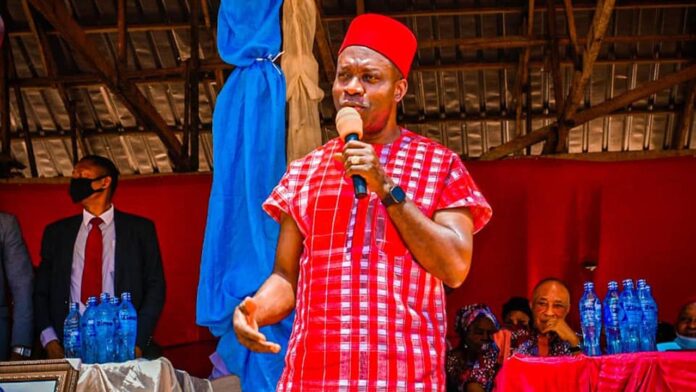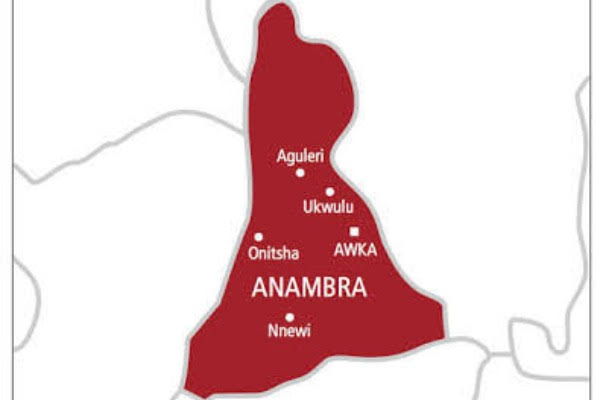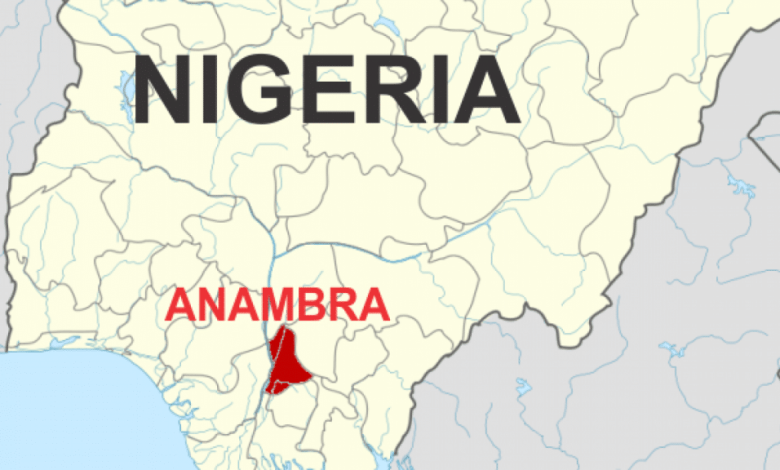David-Chyddy Eleke looks at some of the issues that may constitute impediments to Anambra State Governor, Prof Chukwuma Soludo’s Quest for a second term in office.
There are several factors that will constitute opposition against Anambra State governor, Prof Chukwuma Soludo’s quest to be returned by Anambra people for a second term as election holds later in 2025.
Soludo has been governor of Anambra for less than two years, but already, many opposition parties and politicians have started showing interest in taking his seat. Soludo is yet to declare his intention to contest for a second term, but it is a privilege that is within his right, which many believe he will not turn down.
Despite being an incumbent, which is known to be an advantage to anyone holding the position, it is believed that Soludo will face a very tough battle in his quest to get re-elected. This is not just because he occupies an exalted position which many envy, nor because Anambra has severally been described as an “A” list state, which parades men and women whose brains are bursting at it seams with ideas, or pockets fully loaded with cash made from private enterprise, but because elections generally are battles.
Part of the hurdles will be as a result of miscalculations that Soludo has made, which has brought him enemies. This means that besides individuals who have interests, political parties that exist to win elections, there are also institutions that ordinarily should remain neutral, who may likely take sides because they have been offended, or feel offended by the governor, one way or the other.
Peter Obi/Obidient Wave
No doubt, the goodwill and support enjoyed by former governor of the state and presidential candidate of Labour Party in the 2023 general election, Peter Obi, is one factor that may play a key role in challenging Soludo in the next election. Obi would like to stamp his feet as the symbol of new democracy in Nigeria by trying to instal a Labour Party governor in his home state, Anambra, to make huge statement for future political endeavours. Besides this, through his popularity in the last presidential election, Obi has gathered for himself top politicians in Anambra State from across the three senatorial zones of the state as disciples, most of whom benefitted immensely by winning political positions in that election.
These men include Senators Victor Umeh and Tony Nwoye who are sitting senators, and many other current members of the House of Representatives.
Umeh, the Senator representing Anambra Central Senatorial District is a grassroot politician, who had been in All Progressives Grand Alliance (APGA) all through his political career, until Soludo came along and edged him out. He was edged out of APGA in 2023 by forces believed to be propelled by Soludo. The forces oscillated their support between Uche Ekwunife of the Peoples Democratic Party (PDP) and Dozie Nwankwo of APGA. Nwankwo won the APGA primary election against Umeh. But Umeh who later picked the LP Senatorial ticket for the race floored both Dozie Nwankwo and Uche Ekwunife in the contest. The 2025 governorship contest will undoubtedly present an opportunity for him to pay Soludo back.
Senator Tony Nwoye, on the other hand, is also a strong politician from the Northern senatorial zone of the state. He has been described as a one-man riot squad. He has however been touted to have interest in running for governorship, using the Labour Party platform, even though he hails from northern senatorial zone, where the immediate past governor, Chief Willie Obiano, hails from. But on the whole, many are of the opinion that the party may stick to Valentine Ozigbo, the candidate of the party in the 2021 election, and a close ally of Obi to prosecute the election.
APC/Ifeanyi Ubah Factor
Since billionaire oil mogul and senator representing Anambra South senatorial zone, Senator Ifeanyi Ubah, joined the All Progressives Congress (APC), there have been palpable tension among the membership of APGA.
Previously, Anambra people have never given APC a chance. It became even worse during the tenure of former president, Muhammadu Buhari. In the rural parts of Anambra State, many rural people refer to APC as Fulani party, and the brazen attitude of herders during the administration of Buhari even heightened the hatred for the party.
With Tinubu now in charge, the hatred is dying down, and more Anambra sons have embraced the party. Beyond that, the likes of Ubah have begun a campaign to make the state see political parties as mere vehicles used by politicians to arrive at political offices. This has started to soften the mind of the people towards the party. Ubah, a known grassroot politician, who equally has deep pockets had in a recent interview revealed his interest in the election. He is also touted to be attempting to oust Soludo by pairing up with another popular politician and grassroot mobilizer, Senator Uche Ekwunife, as running mate. This has sent jitters up the spine of the ruling party, and may probably be one of the biggest stumbling block for Soludo’s re-election if fielded by APC.
Catholic Church
Anambra has remained one state where religious politics thrives, and this has played a major role in who became governor of the state. Since the return of democracy in 1999, the church in Anambra has played roles on the emergence of governors. And in this, the Catholic Church has always had an upper hand. Save for Dr Chinwoke Mbadinuju who was elected in 1999, every other governor of the state have either been a Catholic or Anglican. These two have remained the dominant religious bodies in the state, and they are not unaware of their own powers, and they deploy it to make kings, even if it meant preaching politics from the very sacred alter of Christ.
Soludo, the incumbent was himself elected on the basis of his being a Catholic, and it was not by mistake that he chose an Anglican, Dr Onyekachi Ibezim, as his running mate. But recently, Governor Soludo had a spat with priests of Catholic Church, when he openly, in the presence of Bishops and Archbishops chastised a priest, Rev Fr Emmanuel Obimma, the Spiritual Director of Holy Ghost Adoration Ministry, Uke, during the burial of his mother.
Soludo had recently begun championing the enforcement of a law which regulates ostentatious display of wealth during burials.
The governor had himself buried his father in December, 2023 in strict adherence to the law. But in the case of Mrs Obimma, his sons, who are wealthy chose to give her what they called a befitting burial. This had drawn the angst of the governor who was at the ceremony. He had chastised Rev Fr Emmanuel Obimma and his brother, Charles Obimma, for such show of opulence in a burial. Charles, a former lawmaker was in the Anambra House of Assembly when the law against such displays during burials was passed, and Soludo was said not to have spared anything in chastising him for breaking a law he contributed to making.
He was also said to have come hard at Fr Obimma, and by extension the Catholic Church by showing his disappointment at a priest involving in such disrespect for the law.
This was said to have irked the Archbishop of Onitsha Arch diocese, Valerian Okeke, who took the microphone and thoroughly rebuked the governor for involving in petty things and disregarding the main issues of governance. Though the matter had been managed amicably, but it is still believed that Soludo’s temerity to speak to priests in such matter may not be something to go away so easily. If the Catholic Church which Soludo is also a part of decides to fight him, his chances of survival may be slim.
Traditional institution
The traditional institution is another institution that may pose a challenge to Soludo’s re-election bid. He recently had a running battle with some traditional rulers, which also led to the suspension of some of them. The issue was the conferment of chieftaincy title on Senator Ubah.
Ubah had been conferred with the chieftaincy title of Odenjinji by the traditional ruler of Neni Community, Igwe Damian Ezeani.
He was however suspended by the state government for doing so without obtaining the approval of the traditional ruler of Nnewi Kingdom, where Ifeanyi Ubah hails from.
A press release by the state commissioner for Local Government and Chieftaincy Matters, Hon Tony Collins Nwabunwanne, suspending Igwe Damian Ezeani supported its action with a section of the Anambra State Traditional Ruler Law, which stipulated so.
The action had generated a lot of dust, with many condemning the Soludo government for such action. This had led to the monarch, and all others who conferred titles on Ubah within the Christmas period tendering apologies, with some even withdrawing the titles.
In what looked like drawing a battle between the traditional institution and the governor, the chairman of Anambra State Traditional Ruler Council, and Obi of Onitsha, Igwe Alfred Nnaemeka Achebe wrote the commissioner, siding the monarchs.
He condemned the action of the state government, and accusing Soludo of thoroughly belittling the traditional institution in the state. Achebe reminded the state government that a stipend of N170,000 which he pays monthly to all monarchs is not enough reason for him to denigrate them that much or see them as his boys.
He reminded that the traditional rulers were accomplished personalities in many fields before taking up the traditional stools of their communities, and should not be looked at as errand boys.
This may have sparked a war that is believed to have been managed perfectly by the state government, as Governor Soludo in a visit to the meeting of the traditional rulers recently, dissolved the Achebe-led council, citing that it was improperly constituted.
As properly as this has been managed, it is believed that the election of 2025 will present an opportunity for the monarchs to draw a pound of flesh from Soludo too, when he will be needing them and their subjects to cast their votes for him.
Meanwhile, Soludo does not seem to be unmindful of these challenges, and may also be working out strategies to combat them. He still has two years to court the friendship of those he may have offended with his policies, and also up his achievements as campaign strategy. For example, he may be campaigning with his achievements in office, including road infrastructure, the new government house, employment of teachers and health workers, among other achievements. But as 2025 draws close, events in the state would unfold appropriately.






